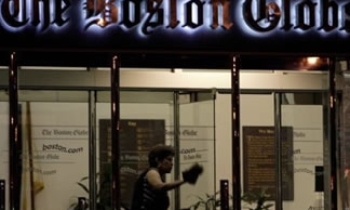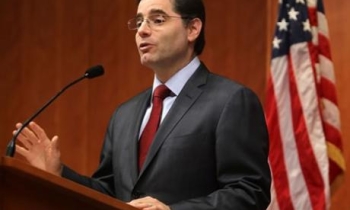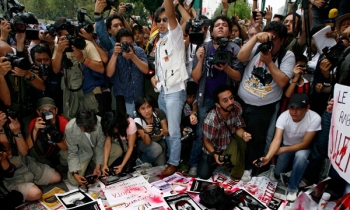A Pulitzer Prize-winning reporter seeking to protect the identity of unidentified sources is asking two judges to stop a deposition intended to reveal who leaked information to him about the investigation of a prosecutor, the Associated Press (AP) has reported.
Some details from the AP report:
David Ashenfelter of the Detroit Free Press is scheduled to give testimony in a deposition Thursday. A federal judge had ruled in August that he couldn't claim a reporter's privilege to avoid a subpoena in the former prosecutor's civil case. His lawyer, Herschel Fink, said if the courts turn him down, Ashenfelter will refuse to answer questions Thursday, "likely leading to a contempt citation."
Former assistant US attorney Richard Convertino handled the first major terrorism trial after 9/11, only to have the convictions thrown out at the government's request because evidence was withheld. He resigned in 2005. He is suing the government and is seeking to find out who in the US Justice Department supplied information to Ashenfelter for his Free Press story in 2004.
The First Amendment Centre has some backgrounder from an earlier AP report on the subject:
Convertino was a high-ranking prosecutor who handled the first major terrorism trial after 9/11. But it turned into a disaster for the government: Two convictions in Detroit in 2003 were overturned at the Justice Department’s request because evidence was withheld. Convertino and a former State Department investigator were indicted for their work on the case, but a jury acquitted them in October 2007.
Ashenfelter wrote a story in January 2004 that said Convertino was being investigated by the Justice Department’s Office of Professional Responsibility. The story listed many allegations and attributed the information to officials who asked for anonymity because they feared repercussions.
Convertino filed a lawsuit against the government a month later, accusing officials of violating the Privacy Act by leaking information about him to the Free Press. In seeking Ashenfelter’s sources, Convertino’s attorneys said the sources did not deserve to be protected because the information they shared was meant only to smear Convertino.









